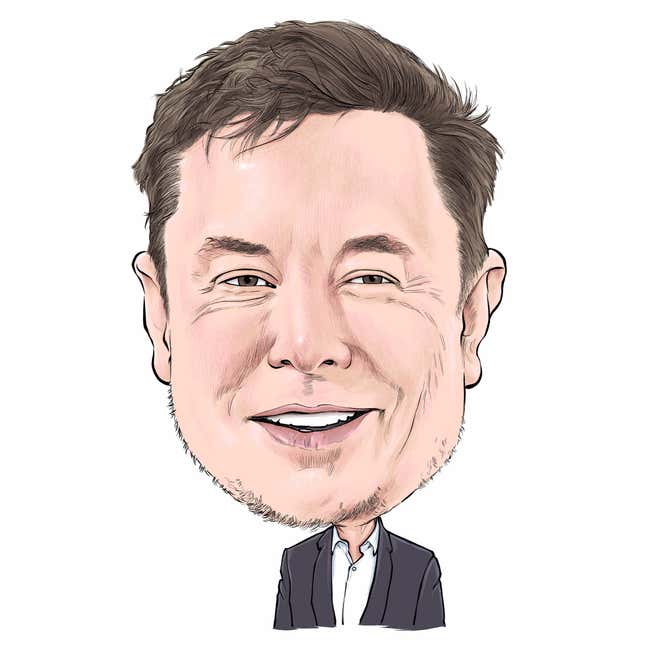Headlines This Week
- The Pentagon needs to beef up its automated drone hordes with some AI. File that underneath Issues That Will Maintain You Up At Evening.
- OpenAI has admitted that AI textual content detectors generally do not work. Cool.
- As fears of AI-fueled political manipulation develop, Google has announced that any political adverts hosted on its platforms should disclose whether or not they used AI or not. I’m undecided that may actually repair the issue, nevertheless it’s a pleasant gesture simply the identical.
- UNESCO, the UN’s specialised company that focuses on arts, tradition, and schooling, has urged governments to control generative AI in faculties. I think they’ve observed just how terrible ChatGPT has been for faculties within the U.S., the place college students are utilizing it to cheat like there’s no tomorrow.
- Final however not least: two U.S. senators have launched bipartisan legislation to control AI. One among them is Josh Hawley, who doesn’t have one of the best tech policy track record on the earth.
The Prime Story: Elon’s Final AI Company

For the previous decade, Elon Musk has invested closely in a slew of progressively weirder companies, a lot of which have a dystopian hue to them. From his computer-to-brain interface startup Neuralink, to his pet Tesla challenge “Optimus,” the bipedal robot, to ChatGPT creator OpenAI (which Musk co-founded), Musk has helped spawn a pantheon of bizarre, sci-fi-tinged companies which can be actively flirting with the fringes of technological innovation. Now, Musk’s new biographer, Walter Isaacson, has put forth the conjecture that many of those companies are a part of a broader scheme by Musk to usher in a daring new period of synthetic intelligence. In an article printed in Time, Isaacson argues that the majority of Musk’s varied startup investments and enterprise ventures have been a part of a broader technique to spur the creation of “synthetic basic intelligence,” or AGI.
Not aware of AGI? The idea is decidedly vague. It mainly contends the appearance of that scary AI future we’ve all had desires (or nightmares) about—the “singularity” the place synthetic intelligence isn’t just a rote mechanism of human-led algorithmic manipulation (“stochastic parrots,” because the latest giant language fashions have been known as), however a self-teaching natural intelligence that mirrors—and even surpasses—the sort people naturally maintain.
Throughout an interview with Isaacson, Musk apparently advised the author that he thought his many disparate enterprise ventures—like Neuralink, Tesla’s Optimus, and a neural-network-training supercomputer known as Dojo—may very well be tied collectively “to pursue the purpose of synthetic basic intelligence.”
Pivotal to this supposed grasp plan could also be Musk’s latest launch of yet another startup, xAI. Isaacson appears to suppose that Musk plans to fold a lot of his different companies (together with xAI and X, aka, the web site previously generally known as Twitter—which Musk purchased last year for $44 billion) into one huge enterprise. The end result may very well be a serious synthetic intelligence company designed to push technological boundaries past their present restraints.
Nonetheless, many critics preserve that AGI is kind of a far manner off. Whereas Musk could have his sights set on being the techno-messiah who brings in regards to the robotic revolution that—based on countless science fiction films—will in the end doom mankind, the jury nonetheless appears to be out on whether or not that’s really doable within the close to, and even, far, time period. Isaacson’s e-book on Musk, however, is obtainable within the quick time period. The biography is due out subsequent Tuesday.
The Interview: Michael Brooks, on the Challenges That Lie Forward for the Robotaxi Business

The interview this week includes a latest dialog with Michael Brooks, the manager director of the Middle for Auto Security. Michael’s group has repeatedly expressed criticism of the self-driving automobile trade and supplied concern for the potential highway hazards posed by it. When GM’s Cruise and Google’s Waymo just lately got the go-ahead to develop business operations for his or her robotaxis in San Francisco (a big step within the evolution of the self-driving automobile trade), we thought it could be a great alternative to speak to Michael in regards to the challenges posed by automated highway journey. This interview has been edited for readability and brevity.
What do you consider the latest developments with Cruise and Waymo in San Francisco?
There’s been loads occurring currently…I feel San Francisco has actually woken as much as the truth that there’s an issue right here. I feel they’re beginning to ask the query: ‘Why do we actually want this? Why do we want further autos on our roads clogging up visitors?’ However, you recognize, on the identical time Cruise is increasing throughout America. They’re in Raleigh, they’re in Austin. There’s quite a lot of different cities in different states the place they will have a presence.
Have you ever been monitoring how the self-driving automobile trade has been making an attempt to form the regulatory atmosphere round their autos?
One thing that the auto trade has tried to do across the nation is management coverage on the state stage. What that does is take away the flexibility of the fireplace chief or police chief in San Francisco to say, ‘Hey, these automobiles have to be off my roads at this time. There are issues of safety.’ That’s on the coronary heart of [what was expressed at] the DMV and Public Utilities hearings in SF…individuals who really stay in these cities and need to expertise the damaging results of those automobiles don’t have a voice or any management over whether or not they’re deployed on their streets. It is a regulatory setup that autonomous autos corporations love. There are typically vital political variations between cities and states and the automobile producers know that it’s going to be very arduous for cities to battle again [against the states] once they’re able like this. So that they like the concept of the state regulatory atmosphere—for now. In the end, they need a federal scheme that preempts the state from doing something as effectively. I feel the facility that the states suppose they’ve proper now could also be fleeting.
There’s been quite a lot of speak in regards to the potential for self-driving autos to scale back highway mortality charges. Do you suppose that, hypothetically, there are some public well being advantages right here?
Hypothetically, there are. Nonetheless, the autos will have to be examined at speeds increased than 30 miles per hour in the event that they wish to be deployed extra broadly (30 mph is the velocity at which Cruise was just lately authorized for business operations in San Francisco; Waymo, in the meantime, was authorized for journey at as much as 65 mph). We see a lot dying and destruction at increased speeds—and that’s the place quite a lot of the true human judgment and errors are made. Autonomous autos are going to have to handle if that in the event that they wish to be one thing that people can use throughout the nation. Proper now, one of the best case state of affairs for this expertise could be very quick journeys on closed programs the place nothing’s going to scare them they usually know they’ll have wifi indicators they usually’re not going to run via concrete. Issues occur so quick in automobile crashes at increased speeds; with out testing the automobiles in these environments and demonstrating there’s some form of security profit to them, it’s arduous to know what’s going to occur with these merchandise sooner or later.
Make amends for all of Gizmodo’s AI news here, or see all the latest news here. For day by day updates, subscribe to the free Gizmodo newsletter.
Trending Merchandise

Cooler Master MasterBox Q300L Micro-ATX Tower with Magnetic Design Dust Filter, Transparent Acrylic Side Panel, Adjustable I/O & Fully Ventilated Airflow, Black (MCB-Q300L-KANN-S00)

ASUS TUF Gaming GT301 ZAKU II Edition ATX mid-Tower Compact case with Tempered Glass Side Panel, Honeycomb Front Panel, 120mm Aura Addressable RGB Fan, Headphone Hanger,360mm Radiator, Gundam Edition

ASUS TUF Gaming GT501 Mid-Tower Computer Case for up to EATX Motherboards with USB 3.0 Front Panel Cases GT501/GRY/WITH Handle

be quiet! Pure Base 500DX Black, Mid Tower ATX case, ARGB, 3 pre-installed Pure Wings 2, BGW37, tempered glass window

ASUS ROG Strix Helios GX601 White Edition RGB Mid-Tower Computer Case for ATX/EATX Motherboards with tempered glass, aluminum frame, GPU braces, 420mm radiator support and Aura Sync









